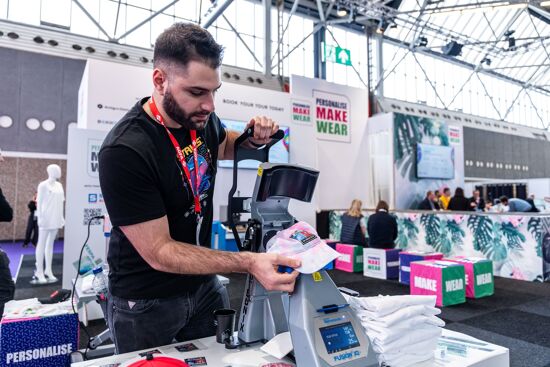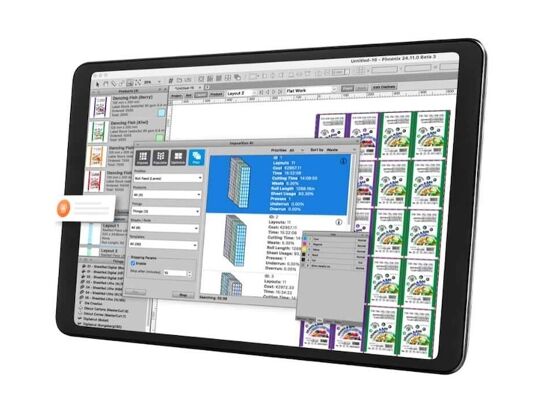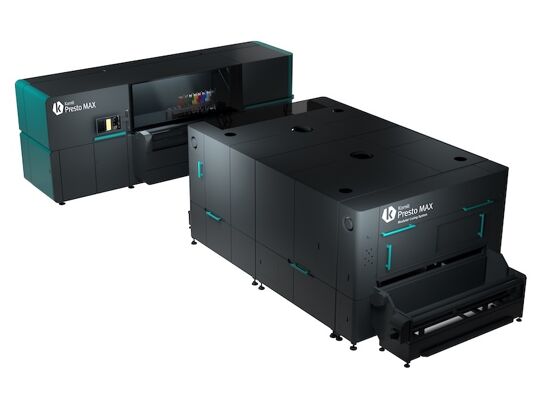Social distancing: the opportunity for printers and signmakers

Graeme Richardson-Locke discusses the new era of social distancing and what opportunities it presents for printers and signmakers
In the space of a few months, the COVID-19 pandemic has not just disrupted the way we work on a temporary basis, but has single-handedly forced countless companies to take a hard look at their business and rethink workspaces and operational models.
In a time of profound disruption, print businesses need to be prepared to reinvent their propositions to develop new revenue streams and attract new customers. For a number of graphics producers, significant print volumes may have been reliant on concerts, shows and other events going ahead, as well as on active business from the tourism, hospitality and leisure sectors. The shutdown of non-essential retail has also decimated the flow of orders for promotional graphics.
But the new era of social distancing presents a unique opportunity for printers and signmakers to meet customer needs with fresh, creative products and propositions, while the sharp increase in demand for COVID-19-specific products means that printers are sought after to provide a diverse range of solutions.
Suddenly, floor graphics, pavement signs, bollard covers, as well as both indoor and outdoor banners are being actively employed for upholding social distancing measures and ensuring a safe environment for both staff and customers. With offices, retail stores and public spaces scheduled for re-opening from now and through the summer months, depending on the specific guidelines in individual countries, demand for these products will be higher than ever, and turnaround times will be much shorter as a consequence.
One area of business that could benefit from printed graphics is the food service industry. Since restaurants face closure or restricted re-opening for the time being in many countries, many hospitality business owners are switching to food delivery models or pivoting to other services. This stimulates demand for posters and banners promoting takeaway meal services, or outdoor signage featuring QR codes that make ordering outside a restaurant easier.
Social distancing measures are also set to be extensively incorporated into office spaces and other working environments, where there will be a requirement for effective physical screening and zoning. Updated health and safety signage will feature more prominently, but there are also more creative opportunities for signmakers, for example offering lightboxes and printed partitions to be used as flexible and aesthetically-pleasing room dividers.
But perhaps the biggest opportunity lies in the recovery of the retail sector. After months of reduced social interaction predominantly outdoors and a forced dependence on online purchases, many consumers will be hesitant to return to physical retail spaces. Of course, as shops re-open, store owners will need to employ the now-mandatory signage and floor graphics to coordinate customers in a bid to minimise close contact. But, thinking more positively, they will also want their retail spaces to be visually appealing, to attract customers into their stores and soften the negative emotional impact of so many restrictions and prohibitions. This can be achieved with high impact graphics on floors, walls and window surfaces and perhaps by re-energising interiors with eye-catching décor.
So while numerous print businesses have been rocked by the disruptive force of the pandemic and its economic consequences, business recovery across all sectors does offer positive opportunities for sign-makers and print service providers who can see the creative role that print can play in enhancing everyday experiences as we adjust.
Like so many other industries right now, speciality printers face some hurdles ahead, but that does not mean that they will not be able to overcome them. Yes, disruption is a debilitating experience for a business, especially when it is involuntary. But the businesses that are confident enough to adapt and diversify their offering and devise products and solutions that are orientated to changing customer needs are the ones that are likely to capitalise on wider business recovery and, ultimately, reap the greatest benefits when demand returns.
Topics
Interested in joining our community?
Enquire today about joining your local FESPA Association or FESPA Direct
Recent news

Special Effects in DTF Will Make Your “Prints” More Memorable
The DTF market is expanding with new vendors and innovations like multi-head printers enabling diverse ink options (spot, neon). Decorative films offer streamlined special effects. Keypoint Intelligence tested metallic and glitter films, noting varied ease of use and wash durability. New technology using adhesive and foil directly promises further creative advancements in DTF.

SmartHub – Expectations, opportunities and why you should attend!
The SmartHub at Personalisation Experience 2025 in Berlin will showcase personalisation and smart production opportunities across industries like textiles. Featuring a Smart Factory Trail with brands like Inkcups and Trotec, and a conference with experts discussing AI, mass customisation, and profit strategies, it offers insights into reducing waste and boosting efficiency through digital methods. Panel sessions will explore growth, automation in textiles, and smart manufacturing.

How is AI revolutionising Large Format Print?
Nessan Clearly discusses how AI in print relies on data pattern matching, already enhancing software for large format providers. He predicts that this will result in increased AI integration in workflow planning, job queue management, colour correction, image upscaling, and predictive maintenance via sensors and vision systems, ultimately streamlining operations and offering greater flexibility.

One Ink for All? Exploring Pigment in Textile Printing
Digital textile printing faces complexity due to diverse substrates requiring specific inks. The industry seeks a universal ink, with pigment ink showing potential. While traditionally for natural fibres, advancements aim to broaden its application, simplify processes by reducing pre/post-treatment, and improve sustainability, though challenges like hand feel on garments remain.